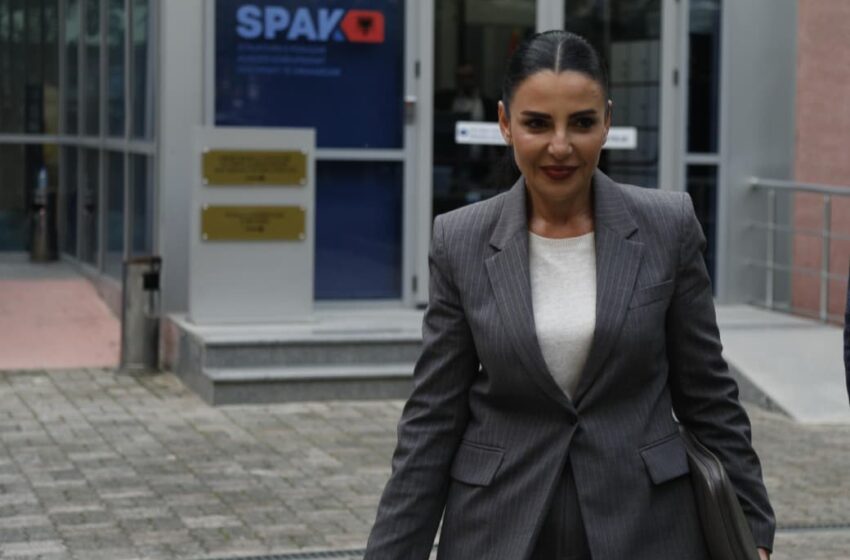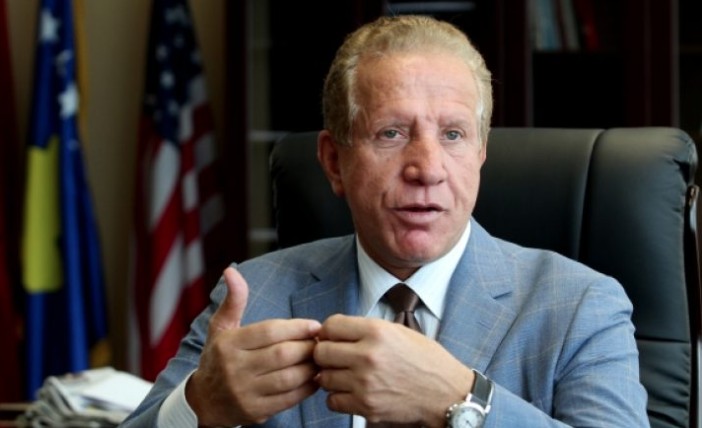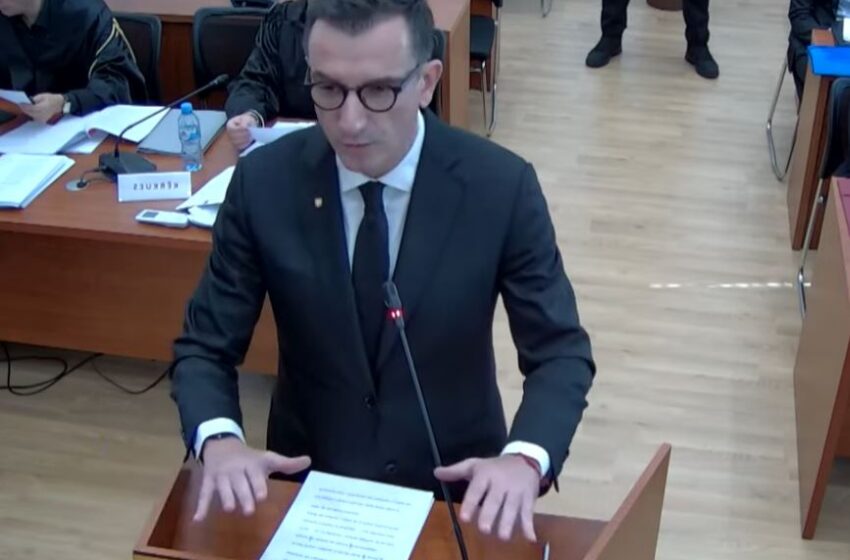Why should we tolerate Tanja Fajon’s insult?

When I heard that the Slovenian politician, Tanja Fajon came to Tirana and said that Albania could join the EU by 2030, I realized that even this date is impossible because Europe is filled with inconsequential politicians like Tanja Fajon, who speak without knowing what they are saying.
If I could I would ask her a question, not to catch her off guard because that would be too easy, I would ask her why she thinks Albania could become a member of the EU in 2030 and not in 2028? Or in 2035?
What does Tanja Fajon expect us to do until 2030 that we cannot do already by 2028 or 2027?
But of course, Tanja Fajon has no answer to any of this. How could she?
Much like her, there are today in the EU hundreds of inconsequential politicians that make a career out of participating in seminaries where no decisions are ever taken and where no one is held responsible for what they say. Someone who knows this breed of politician well, once told me that for them no action, is action. Tanja Fajon is typical of a generation of politicians for whom a lack of action is action.
In any case, she is not the problem and I do not want to discuss her. No one can choose the time in which he or she lives.
So, the problem is not Tanja, but the fact that Europe is in the hands of politicians like Tanja.
The Europe we know after 1990 is divided into three epochs.
During the first epoch, following the fall of the Berlin Wall, Europe could take just decisions, indeed very just decisions, one of which was the accession of Slovenia, Tanja Fajon’s country, to the European Union on May 1 2004. 20 years ago.
In the second epoch, which was dominated by Angela Merkel, Europe was able to take decisions, although many of them were wrong, such as the exacerbation of the Greek crisis in order to strengthen Germany while weakening everybody else, which eventually led to the exit of the United Kingdom which understandably could not accept the German domination of Europe.
However, in the third epoch, the one we live in, the problem has become even greater. Europe can no longer decide. If the politicians that lead Europe today had been in power in 2004, probably even Tanja Fajon herself would not have voted in favor of her country, Slovenia, becoming a member of the European Union. This does not mean that Tanja or politicians like Tanja do not love Slovenia or Albania. It means that delaying, or rather not taking any decision at all, has become the most distinctive characteristic of Europeans today.
Europeans are not deciding on anything, not about Ukraine, nor about immigration, nor about Israel, nor about Hamas, nor about enlargement. So how can we ask them to take a decision on Albania? As soon as one issue is resolved, another issue pops up, and by the time the second issue begins to be addressed, the elections come up. If the first issue has not been properly resolved by then, you lose the elections on the second issue. Therefore, the main characteristic of political survival in Europe is the opening up of all issues without resolving any of them.
This is why migrants flood Europe but are not integrated into Europe, this is why there is no end in sight to the war in Ukraine, this is why the economy is in constant decline, this is why Kosova and Serbia cannot find peace, and this is why there is no enlargement and there will probably be no enlargement for quite some time.
If once upon a time Europe had strategies, some of which failed and because of this were transformed into tactics, today it has neither strategies, nor tactics. It has only techniques. Techniques that may well be dubbed electoral techniques, because by doing nothing it becomes easier to win.
Or to be more precise, the ability to cause a crisis receives more votes than the ability to solve a crisis. This is why every crisis is followed up by yet another crisis and then yet another. Living in a crisis has become the new normal.
Because she lived in an era when grand strategies were forgotten and small tactics took over, Angela Merkel lost her political legacy, Boris Johnson lost his party, and Macron is concluding both of his terms without resolving anything.
Emanuel Macron is the king of this superficial technique, which can otherwise be defined “pretend to do a lot, but do nothing.” Macron’s constant pirouettes between the left and the right in Europe is now referred to as constructive liberalism.
This is the latest fashion in Europe and it resembles a walk on high heels right before you fall.
Unfortunately, this is the time we live in and this is why Tanja Fajon leaves Tirana proudly, convinced that she has not only done some work, but that we believe in her and she has given us some hope.
Now, since as I recall Slovenia joined the EU 20 years ago in 2004, I believe some comparisons are warranted.
Anyone who knows even a little bit about this wonderful mountainous country, which occasionally produces great NBA players, first ladies, or Marxist philosophers like Slavoj Zizek, cannot convince me that the gap between Slovenia and Albania is almost 30 years.
Undoubtedly, Slovenia has been better governed than Albania over the past 100 years and certainly so over the past 30 years. However, its great fortune was that it was not involved in the internal conflicts of Yugoslavia. Unlike what happened to Croatia, the war between Serbia and Slovenia lasted only 10 days in 1991 and can hardly be called a war. Fewer than 20 soldiers were killed.
So, if we go back to 2004, the very just EU decision to admit Slovenia was driven not just by the quality of its economy and democracy or the rule of law, but also by its peaceful exit from the hell of Yugoslavia. Croatia, Slovenia’s twin country, was burned in that hell and barely emerged from it, joining the EU almost ten years later in 2013.
In Europe, perhaps no country resembles Albania more than Slovenia.
They have 2.1 million inhabitants; we have 2.4 million. They have a narrow coastline on the Adriatic; we have the largest coastline after Italy. They have many forests and mountains just like us. They have as much snow as we do, but we have far fewer skiers. They do not share a border with Serbia, nor do we. They are in NATO, and so are we. They had 6 million tourists last year, we believe we had 7 million. Of course, they have a GDP nearly 4 times larger than ours, but given the fact that they have been in the EU for 20 years, this difference is not as significant as it seems.
So, what more should we do so that we can become a part of the EU like Slovenia? What have we not done since 2004 when Slovenia became an EU member to make Tanja Fajon think she has the right to set a date for us?
I believe that over the past 30 years no country has done more of what was asked it by Europe. Albania is the most compliant country on this continent and perhaps even on the planet. Unfortunately, Albania has shown a colonial subservience that has at times reached the point of humiliation.
They have asked us not to lay claim to even a single square meter of what we lost in the Balkans, and that’s what we did. They have asked us to discourage the unification of Kosovo with Albania, and that is what we do every day without restraint. They have occupied us but have not paid any reparations, and we have accepted it. They have asked us to become hostile to Russia, and that’s what we have done. They have asked us to refuse Chinese investments, and we have done so stubbornly, even though they themselves have not refused Chinese investments and have no reason to do so. They have asked us to send soldiers to Afghanistan, where we have no reason to be, and we have complied. They have asked us to close our market to the East, and we have done that. They have asked us to lower the prices of our agricultural products, and we have done that. They have taken most of our natural resources or destroyed them, rendering them useless, and we have accepted it. They have limited our fishing quotas in the Adriatic, and we have accepted it. They have asked us to build a special court of law run by them, and we have done that. They have asked us to allow them to appoint our judges and prosecutors, and we have accepted it. They monitor our elections and tell us how they should be conducted, and we have accepted it. They have asked for a labor force, and we provide it every day. They have asked for miners, farmers, nurses, waiters, students who pay dearly for their poor education, and we have done and continue to do so. They have asked us to change our laws and not pass laws that might favor our market, and we have done that.
So, what more should we do so that we can be treated like the Slovenes?
Why is it that even when we show such compliance, we are asked to be more compliant still? What more must we do to be treated like the Slovenes, the Bulgarians and the Rumanians?
I do not know. But the thing is that even Tanja does not know.
Now she is gone and I cannot ask her. Indeed, I do not even want to ask her because her frivolity insults me and compels me to write things that 30 years ago, I could not even imagine.
Opinion by Ben Blushi
Ben Blushi is a former politician, journalist and writer, winner of the European Union Prize for Literature.
The views expressed in this article are the author’s own. They do not necessarily reflect AlbanianTimes’s editorial stance.


